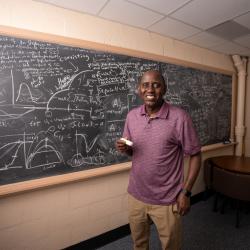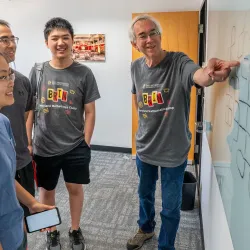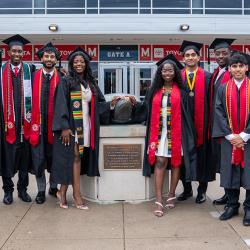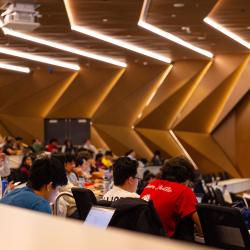Adam Kanigowski Awarded European Mathematical Society Prize
He is the first member of UMD’s Department of Mathematics to receive this prestigious award for young mathematicians.
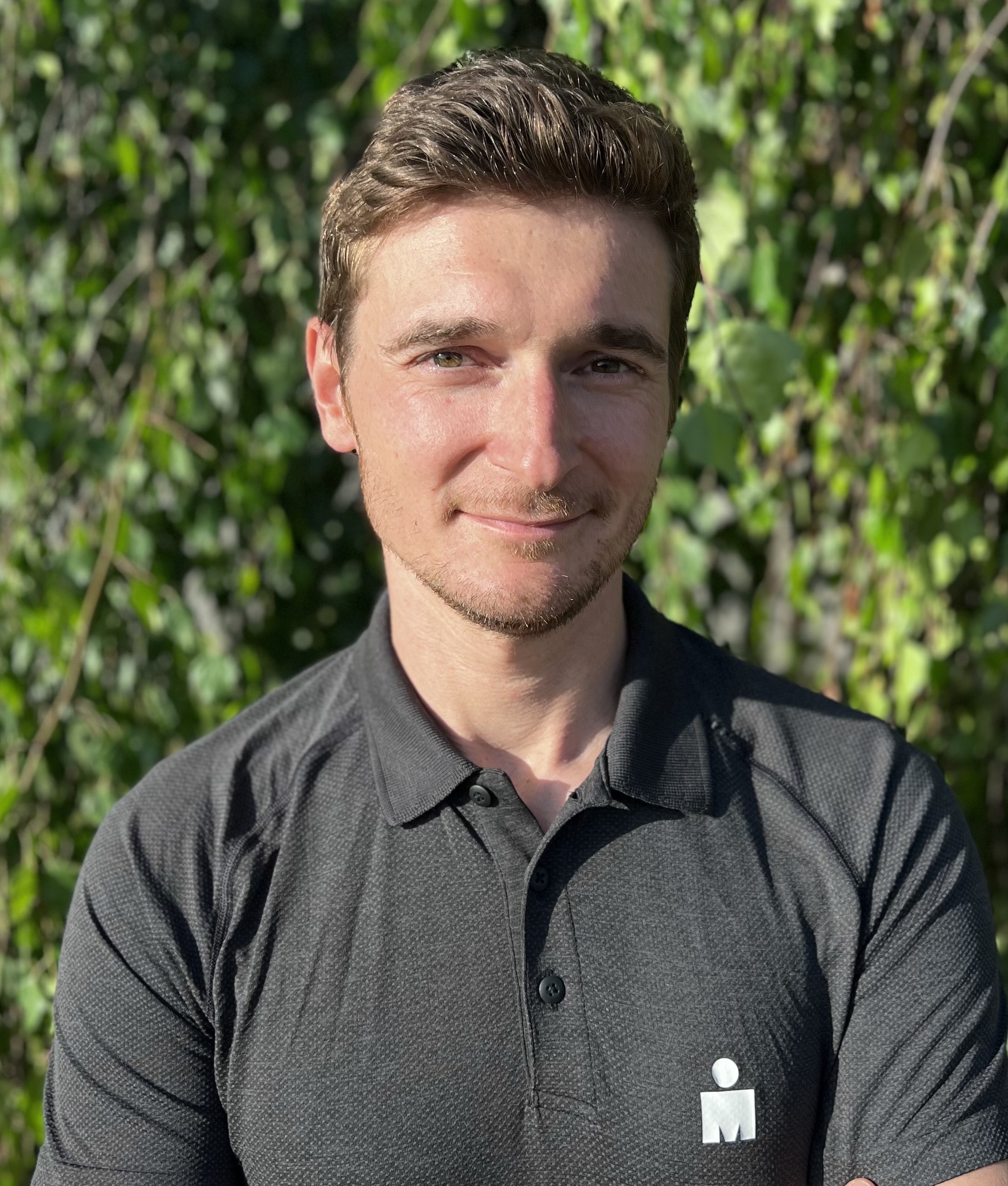
The European Mathematical Society (EMS) awarded a 2024 EMS Prize to Adam Kanigowski, a Polish-born associate professor in the University of Maryland’s Department of Mathematics. Established in 1992, the prize is presented every four years to esteemed mathematicians aged 35 or under who work in Europe or are of European nationality.
Kanigowski will accept his award on July 15, 2024, at the 9th European Congress of Mathematics in Seville, Spain, where he will also present his research on slow chaos, a subset of chaos theory that involves studying unpredictable events that unfold gradually.
When he first learned he received this award, Kanigowski said he was pleased and humbled by the honor.
“It’s quite a prestigious award, and I’m happy that the work I’ve put in was noticed by other people,” he said.
No more than 10 people receive an EMS Prize in each award cycle, and Kanigowski’s achievement represents a first for UMD.
"We have never had a member of our department receive this award,” said Mathematics Chair Doron Levy. “This is a huge recognition, and many of the previous winners have gone on to receive the Fields Medal."
Kanigowski is a theorist specializing in dynamical systems, a mathematical tool for understanding changes in complex systems over time. He earned his master’s degree from the Nicolaus Copernicus University in Toruń, Poland, in 2012 and his Ph.D. from the Institute of Mathematics of the Polish Academy of Sciences in Warsaw in 2015.
After graduating, he joined Penn State University as an S. Chowla Research Assistant Professor in 2015 and then joined UMD as an assistant professor in 2018 after learning more about its dynamics group.
“I think that the dynamics group at UMD is one of the strongest in the U.S., so it was a natural decision for me,” he said. “I'm happy that I can be a part of it.”
Kanigowski’s background is uniquely suited to one of his current responsibilities at UMD: helping to strengthen the relationship between the dynamics groups at UMD and Penn State. Each year since 1991, the two universities jointly sponsored conferences on dynamical systems on their respective campuses. Kanigowski led the organization of UMD’s conference this year, which brought together more than a dozen speakers from around the world in April.
Over the last six years, Kanigowski said he has learned a great deal from his colleagues in the dynamics group—especially Distinguished University Professor Dmitry Dolgopyat—and benefited from his collaborations with Professors Bassam Fayad and Giovanni Forni. Kanigowski has published more than 40 papers in premier mathematical journals—including the Journal of the American Mathematical Society, Annals of Mathematics and Inventiones Mathematicae—and contributed new understandings of the Ratner property, a mathematical concept developed in the 1980s.
In addition to the 2024 EMS Prize, Kanigowski received two other professional awards this year. In March, the Simons Foundation named him a 2024 Simons Fellow in Mathematics, and in April he received the Award of the Institute of Mathematics of the Polish Academy of Sciences for his contributions to the fields of dynamical systems and ergodic theory.
Since December 2022, Kanigowski has led a flagship project at Jagiellonian University in Poland that partly supports a research collaboration with UMD. He also enjoys spending time with his daughters and competing in triathlons. He finished his first Ironman triathlon in Austria in June—a feat wholly separate from his math interests, but one he worked just as hard for.
“I think the stereotype for a mathematician is a person who sits at their desk and is not very active in sports, so finishing a triathlon is one thing I’m really proud of,” he said.
So far this summer, Kanigowski has not stayed idle for long. He recently gave a talk in Bologna, Italy, at a birthday celebration for Forni, an alum of the University of Bologna. He then traveled to Singapore to work with a colleague before boarding a flight to Seville for this week's European Congress of Mathematics.
“There will be a variety of talks at the congress,” he said, “so I'm excited to see the new trends and latest developments in math.”




